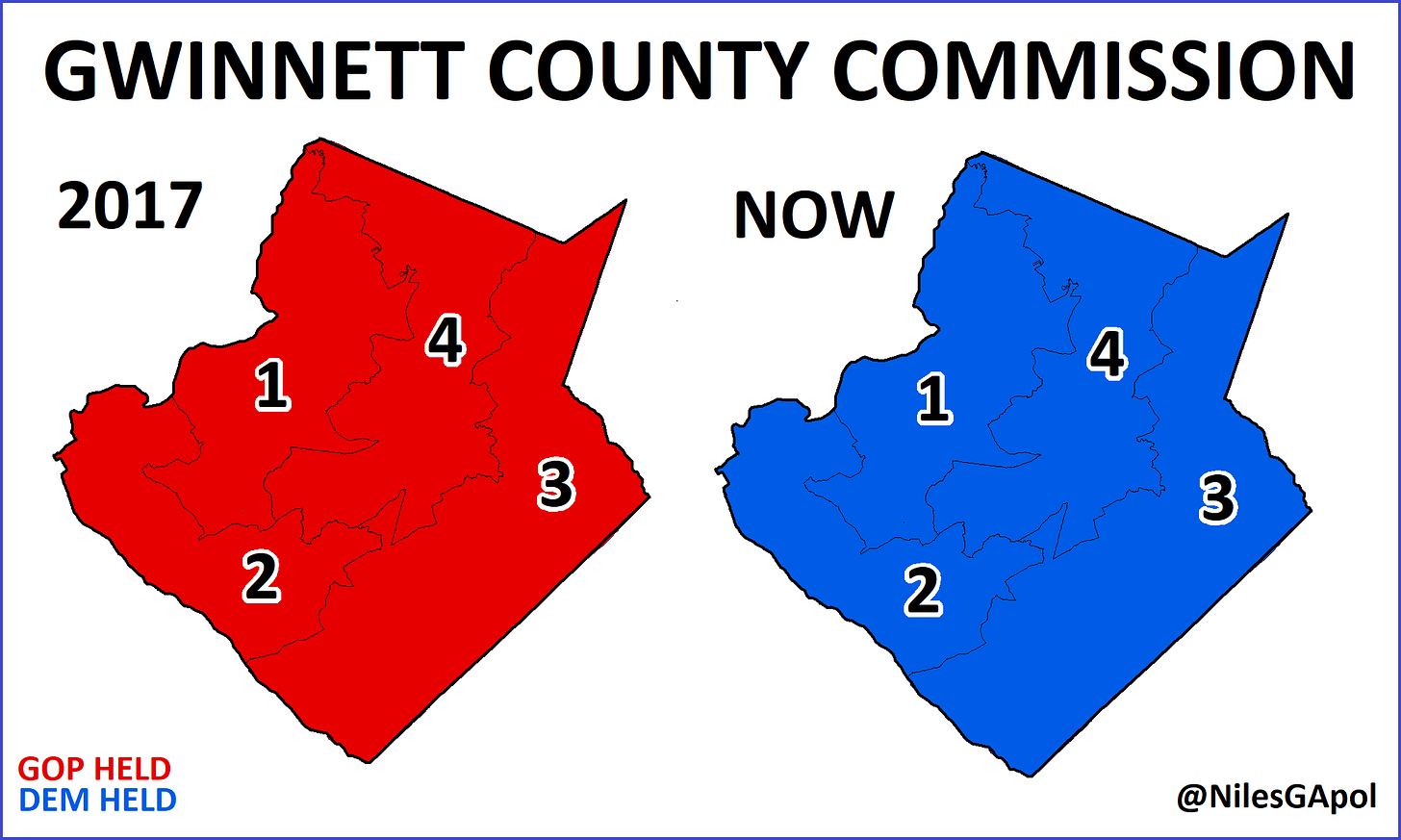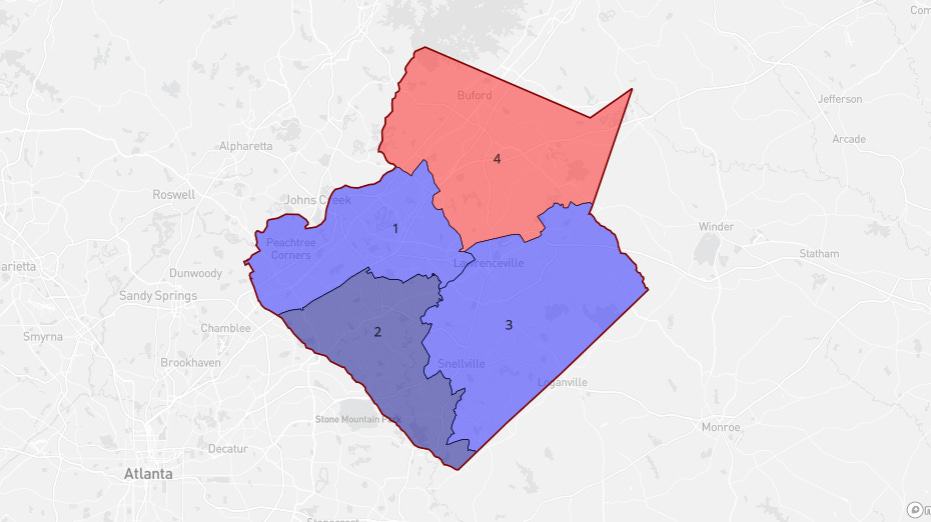GOP lawmakers draw local maps in Dem-controlled counties
Republican lawmakers are seeking to overhaul county government in Democratic strongholds
Congressional and state legislative redistricting may be complete, but county and local redistricting is just getting started.
Georgia Republican state lawmakers are pushing legislation to redraw local districts in at least four counties that have emerged as Democratic strongholds in a politically divided state.
The bills are targeting county commission districts in Gwinnett, Cobb, Augusta-Richmond and Athens-Clarke counties over objections from Democratic lawmakers and local officials from each county.
The local redistricting process is required by law every 10 years so that political boundaries can account for population changes reflected in the recent census.
Power grab?
But Democrats are decrying the move as a politically-motivated power grab, because usually county maps are submitted by commissioners and rubber-stamped by the state legislature.
On Thursday, Republicans turned a blind eye to the local redistricting process, instead passing their own Gwinnett redistricting proposal on a party-line vote.
The legislation comes after an election that saw local government in the counties in question take a sharp turn to the left: The Gwinnett County Commission, which was comprised entirely of white Republicans as recently as 2017, is now made up of all Democrats of color (four are Black, and one is Asian-American).
Cobb County elected a majority-Democratic county commission in 2020. And Athens, home of the University of Georgia, has developed a reputation for having one of the most progressive county governments in the state. Augusta also recently elected a Democratic majority on their county commission.
Gwinnett
Republicans deny any political motivation and argue that the changes are necessary due to the booming population in each county.
State Rep. Bonnie Rich, a Gwinnett Republican who chairs the House redistricting committee, is the architect of the proposal that passed the House this week. Rich’s map, which can be seen above, appears to create a nearly-majority white district in the northern part of the county. Gwinnett Democrats argue that Rich is trying to give white Republicans a voice on the five-member Gwinnett County commission.
Democratic State Rep. Sam Park went a step further: “Clearly, clearly, white power is alive and well in the Georgia Republican Party.” Rich fired back at Park’s “ugly and baseless name-calling.”
Cobb
In Cobb County, a Republican-drawn map would pair a Democrat and a Republican commissioner into the same district.
Democrat Jerrica Richardson, who helped form a majority-Democratic commission with her 2020 victory, would be drawn into a district with longtime commissioner JoAnn Birrell, a Republican.
If the map is approved, Richardson would have to either challenge her Republican colleague or move to another district if she wants to remain on the commission.
Democratic State Rep. Erick Allen, the chair of the Cobb legislative delegation, chastised his Republican counterparts: “Local control is only relevant when they feel like they need to control the locals,” he said of the proposals. Cobb Republicans have rejected Allen’s proposed boundaries.
School Boards
County commissions are not the only local bodies being targeted by state Republicans.
In a party-line vote, the Georgia Senate voted this week to make school board elections in Gwinnett County nonpartisan. It would also move school board elections to earlier in the year, rather than coinciding with November general elections.
State Sen. Clint Dixon, a Gwinnett Republican and the bill’s lead sponsor, has criticized the board for requiring virtual learning, implementing mask mandates and for firing longtime superintendent J. Alvin Wilbanks. He says that the education of children should not be a partisan issue.
Some Republicans and Gwinnett parents have also raised concerns about Dr. Tarece Johnson, the new school board chair. In the past, Johnson has used social media platforms such as TikTok to express her views on race. Many of her videos have been unearthed in recent weeks, and one GOP lawmaker has even called for an investigation into her behavior.
Much like the county commission bills, local leaders say they were blindsided by the Republican-crafted legislation. “It’s really difficult to argue for advancing local legislation that was opposed by the entirety of the local delegation, apart from the author,” State Sen. Michelle Au (D) told the Associated Press. She has suggested that the issue should be placed on the ballot for voters in Gwinnett to decide.
With more than 180,000 enrolled students, Gwinnett is the largest school district in Georgia.
How is this possible?
These redistricting maneuvers are largely possible because this is the first redistricting cycle without the preclearance provision of the Voting Rights Act, which was overturned by the Supreme Court in 2013. In previous decades, state legislators would have to run election law changes such as these by the U.S. Department of Justice. But with no federal oversight, legislators are now free to change election laws at any time.
Nevertheless, Democratic opponents are threatening lawsuits to block the “petite coup of local government.” But voting rights lawyers caution that such litigation would likely be tied up in court for several years.
Gov. Brian Kemp has not weighed in on any of these redistricting proposals. But if he were to sign them, most of the changes would take effect starting with this year’s elections.




Well written Niles Edward
Excellent!